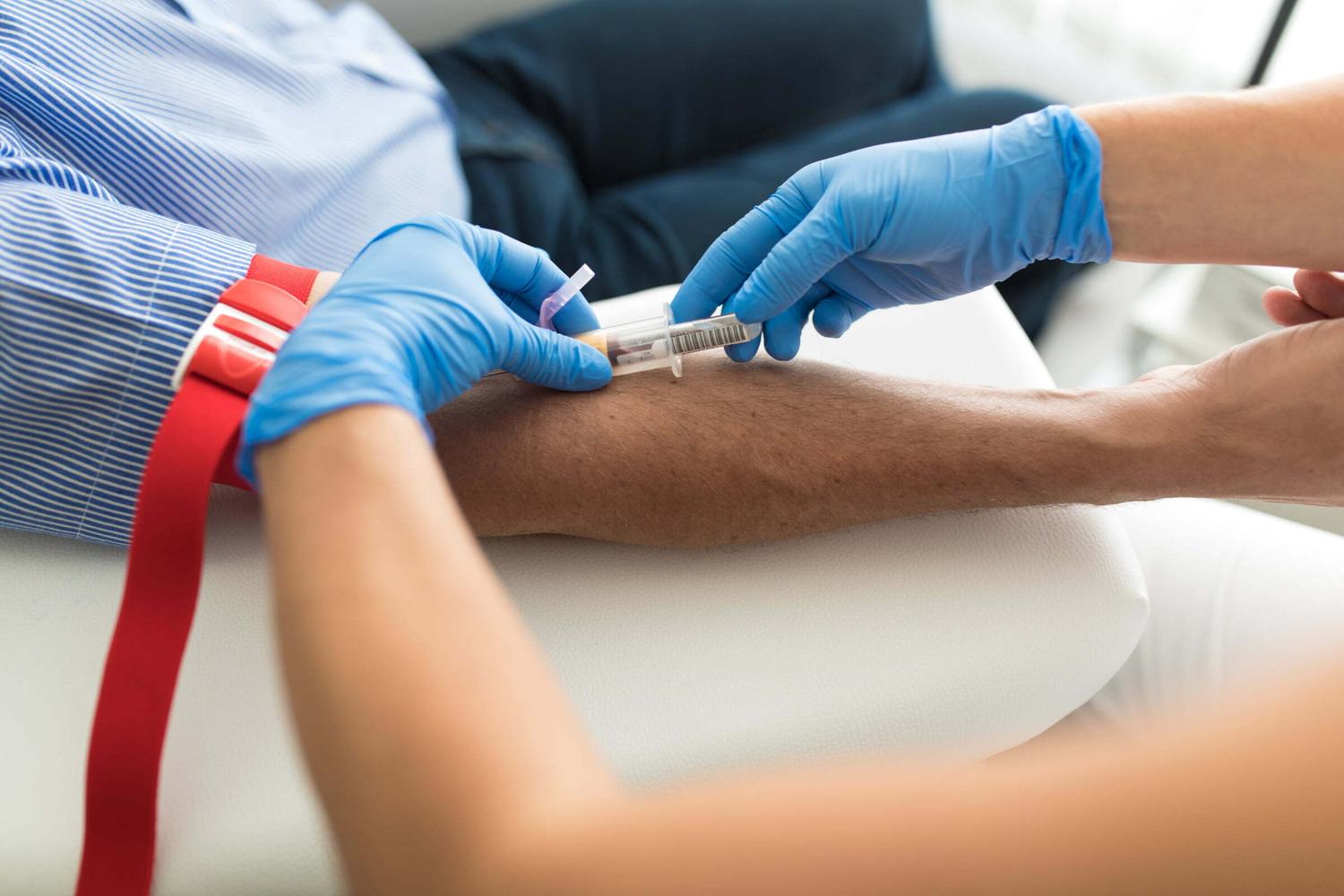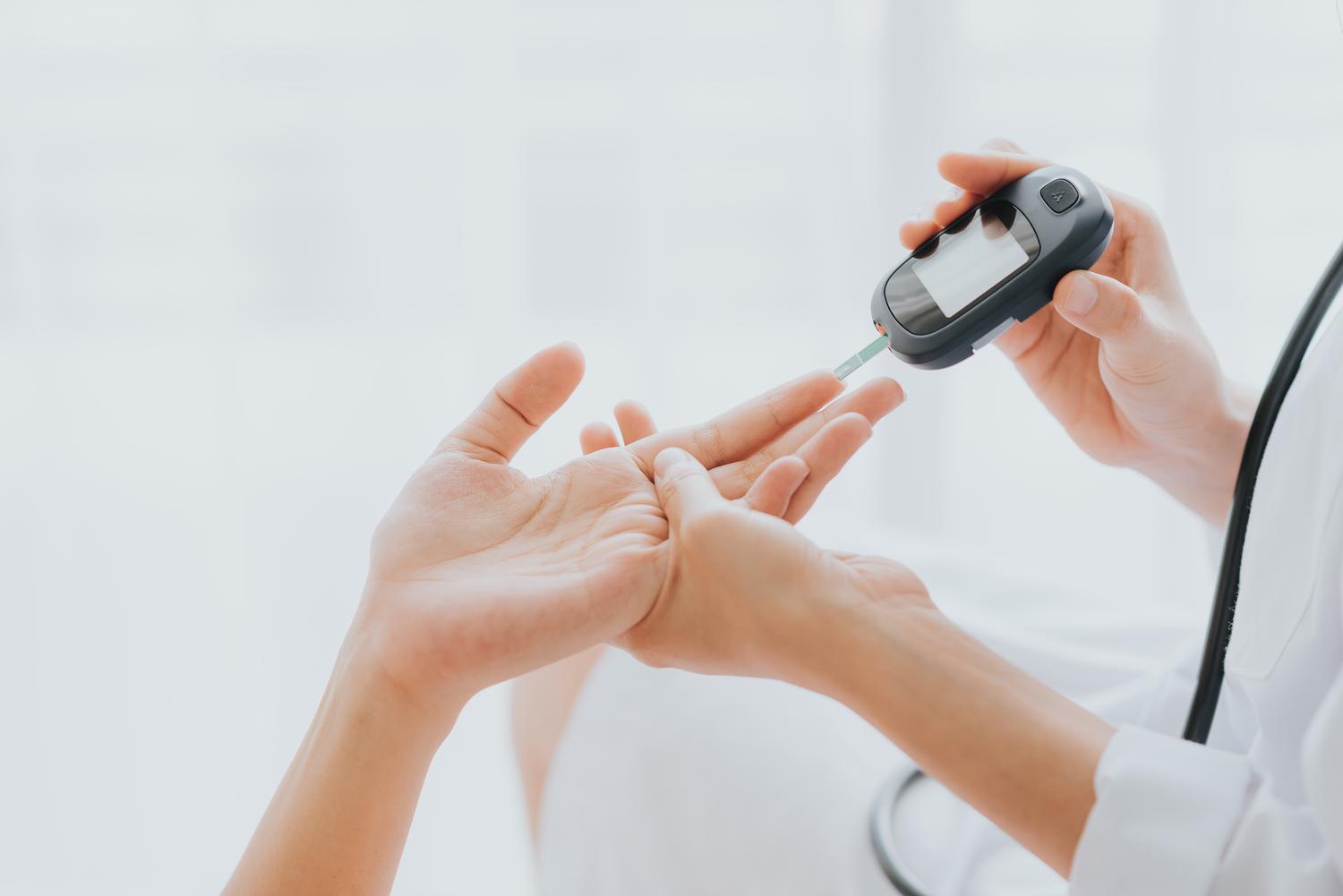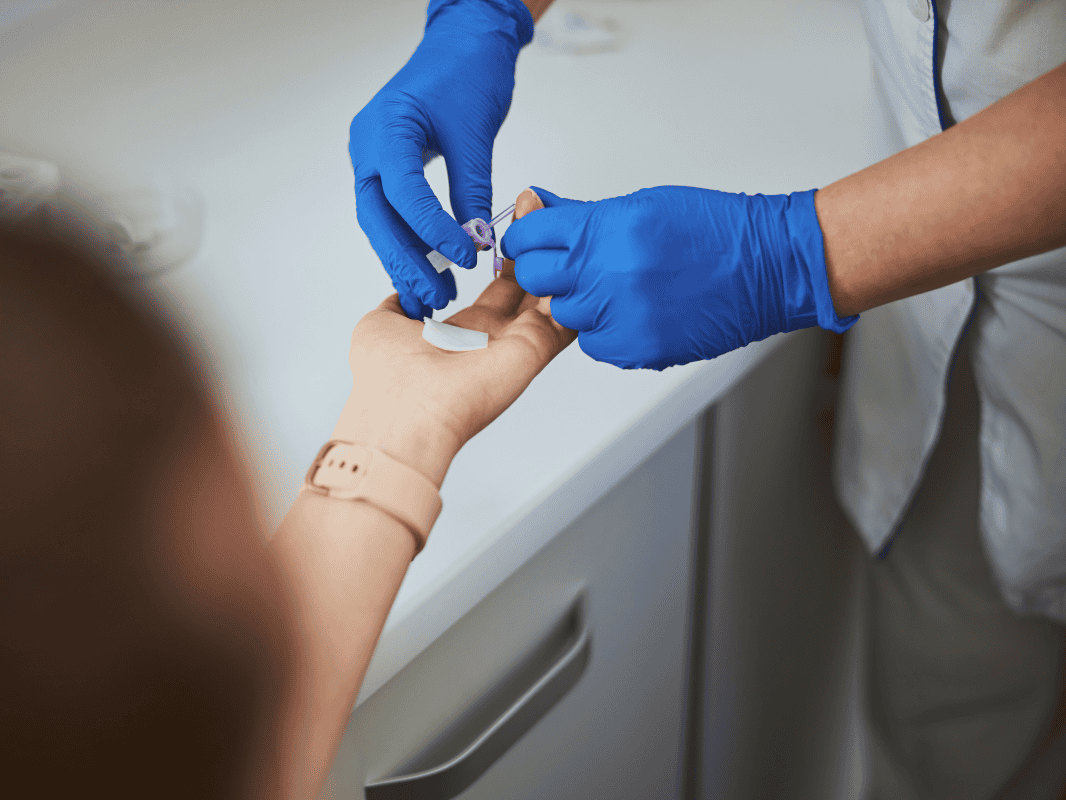Can You Get Comprehensive Male Panel Lab Tests Online?
Yes! Sesame has partnered with over 1,500 Quest Diagnostic locations to offer blood testing - such as comprehensive male panel tests - without having to see a doctor first. When you visit a doctor’s office, you will usually have to pay for both the blood test and the doctor’s order for the test. When you schedule your blood test online through Sesame, the price of the doctor’s order is included with the price of the test. With labs purchased through Sesame, you are guaranteed the best cash price for your comprehensive male panel test - no insurance needed.
If you’re ready to book a lab test, follow these simple steps:
1) Search for the type of lab test you are looking for (e.g., “Comprehensive Male Panel”, or “Testosterone Lab Test”). 2) Browse Quest Diagnostics locations to find the patient service center that is most convenient for you. 3) Either book a walk-in appointment or schedule a visit for a time that works best for you. 4) Save 50-60% on your test with our online-only prices. Pay a one-time price upfront without ever having to see a doctor. 5) We send immediately send your order to the clinic of your choosing so that you can get your testing done that very same day. Either head to the office for a walk-in appointment, or show up at your scheduled appointment time.
Can’t find the test you’re looking for? Email us at support@sesamecare.com or call us at 1 (877) 947-6411 between 9 AM and 5 PM Central, Monday through Friday. We'll try to find you a lab or blood test as quickly as we can.
What is a Comprehensive Male Panel?
Comprehensive male panels are diagnostic blood tests that are used to check levels of certain hormones and substances in the body. While there is some overlap between comprehensive male and female panels, the male panel specifically screens hormones and substances that affect men’s health. These include:
- Total testosterone: This test measures the levels of testosterone in the blood. Testosterone helps regulate body fat, muscle mass, bone mass, red blood cell count, sperm count, and libido. Excessive or low levels of testosterone can lead to a diverse range of health conditions (such as high cholesterol) as well as affect reproductive health.
- Dihydrotestosterone: Commonly known as DHT, this hormone is commonly converted from testosterone as a man ages. Excessive levels of DHT may indicate an enlarged prostate (known as benign prostate hyperplasia). DHEA-S: DHEA is produced in the adrenal glands to promote the production of testosterone and estrogen. DHEA levels decrease with age but are commonly supplemented during hormone replacement therapy to counteract the symptoms of low testosterone or low estrogen.
- PSA: Prostate-specific antigens are proteins created by the prostate gland. Elevated levels of PSAs in the blood can indicate a prostate condition (such as benign prostate hyperplasia) or prostate cancer. Complete blood count (CBC): A complete blood count (CBC) evaluates your overall health by measuring several components of your blood, including white blood cells, hemoglobin, and platelets.
- Lipid Panel: A lipid panel measures cholesterol and other fats in your blood - which can help assess your risk of heart disease and stroke.
- Thyroid Panel: Thyroid panel tests are used to determine the levels of T3 and T4 hormones in your blood. Low amounts of these hormones indicate an underactive thyroid gland (hypothyroidism), where excessive levels of T3 and T4 indicate an overactive thyroid (hyperthyroidism). This panel will also generally include a TSH test, which measures levels of the thyroid-stimulating hormone you have in your body. This helps doctors determine thyroid function.
- Comprehensive Metabolic Panel: A comprehensive metabolic panel (CMP) measures 14 different substances in your blood to give your doctor important information about your body's chemical balance and metabolism. CMPs measure the levels of albumin, blood urea nitrogen, calcium, carbon dioxide, chloride, creatinine, glucose, potassium, sodium, total bilirubin and protein, and liver enzymes (alanine aminotransferase, alkaline phosphatase, and aspartate aminotransferase).
Why are Comprehensive Male Panels performed?
Comprehensive male panels check levels of certain hormones and substances in the blood as a screen for certain heaflth conditions that may be hard to detect without blood work. Some of these chemicals specifically affect men’s health, while others give doctors a more complete picture of your internal health. While comprehensive male panels are rarely used to definitively diagnose health conditions, they may alert doctors to the presence of problems such as:
- Thyroid hormone abnormalities (such as hyper or hypothyroidism)
- High cholesterol
- Autoimmune disorders
- Benign prostate hyperplasia (enlarged prostate)
- Prostate cancer
Additionally, by screening testosterone levels, doctors may be able to diagnose hormone imbalances that cause adverse effects. Abnormal levels of testosterone can lead to symptoms such as:
- Decreased sex drive
- Male pattern baldness
- Erectile dysfunction
- Decreased muscle mass
- Decreased strength
- Fatigue
- Increased blood pressure/ risk of heart disease
- Increased body fat
- Obesity
- Bone loss/ osteoporosis
- Mood changes (such as depression or irritability)
Hormone imbalances, such as low testosterone or hypothyroidism, are generally treated with hormone replacement therapy. The sooner these conditions are detected, the sooner you can begin treatment.
What is the difference between a Comprehensive Male Panel and a Female Panel?
Comprehensive male panels generally screen for testosterone, and dihydrotestosterone, whereas female lab panels will check estrogen and estradiol levels. These different hormones specifically affect men’s or women’s health. However, a comprehensive male panel may include tests for estrogen levels, as excessive amounts of this naturally-occurring hormone in the blood may cause problems in the prostate.
How are Comprehensive Male Panels performed?
Only a single sample of blood is required to measure the various substances screened during a comprehensive male panel. To draw blood, a thin needle is inserted into the arm (usually the forearm). Before the needle is put into your skin, the area will be sanitized. You may feel a pinch as the needle punctures your skin, but this discomfort should subside within a few seconds. The puncture site will be cleaned and bandaged after the needed amount of blood has been drawn from the arm.
Comprehensive male panels are quick and do not require sedation. You will be cleared to leave the clinic and resume your daily activities once the testing is finished.
In most cases, you’ll get your results within 24 hours of your test. If your results require a follow-up appointment, we will advise you on the next steps.
How do I prepare for a Comprehensive Male Panel?
Consult Quest Diagnostic’s website about specific preparation. No preparation may be needed prior to undergoing a comprehensive male panel, or you may be asked to fast for 8-12 hours before the procedure. If fasting is required, it is recommended that you schedule your blood work first thing in the morning.
How long does it take to book a Comprehensive Male Panel?
Sesame is the fastest way to book a comprehensive male panel lab test - at the best cash price. Use our booking platform to schedule a lab test directly at the most convenient Quest lab near you. This takes about 2 minutes. Once you’ve finished checking out, we send your order directly to the lab so you can get your blood work done that day - often with results in 24 hours. That’s convenience you won’t find anywhere else.





